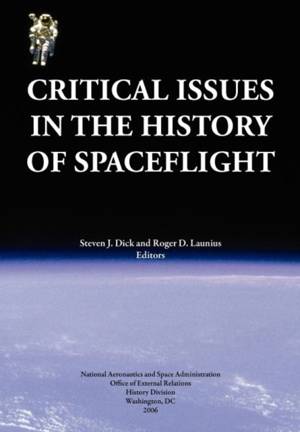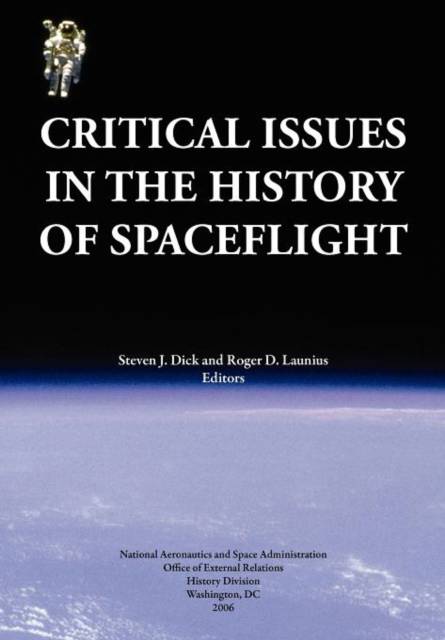
- Retrait gratuit dans votre magasin Club
- 7.000.000 titres dans notre catalogue
- Payer en toute sécurité
- Toujours un magasin près de chez vous
- Retrait gratuit dans votre magasin Club
- 7.000.0000 titres dans notre catalogue
- Payer en toute sécurité
- Toujours un magasin près de chez vous
Critical Issues in the History of Spaceflight (NASA Publication SP-2006-4702)
Steven J Dick, Roger D Launius, Nasa History Division
Livre broché | Anglais
56,45 €
+ 112 points
Format
Description
At a May 1981 "Proseminar in Space History'' held at the Smithsonian Institution's National Air and Space Museum (NASM) in Washington, DC, historians came together to consider the state of the discipline of space history. It was an historic occasion. The community of scholars interested in the history of spaceflight was not large; previously, well-meaning but untrained aficionados consumed with artifacts had dominated the field, to the exclusion of the larger context. At a fundamental level, this proseminar represented a "declaration of independence'' for what might be called the "new aerospace history.'' In Retrospect, it may be interpreted as marking the rise of space history as a recognizable subdiscipline within the field of U.S. history. Bringing together a diverse collection of scholars to review the state of the art in space history, this proseminar helped in a fundamental manner to define the field and to chart a course for future research. Its participants set about the task of charting a course for collecting, preserving, and disseminating the history of space exploration within a larger context of space policy and technology. In large measure, the course charted by the participants in this 1981 proseminar aided in advancing a very successful agenda of historical research, writing, and understanding of space history. Not every research project has yielded acceptable results, nor can it be expected to do so, but the sum of the effort since 1981 has been impressive. The opportunities for both the exploration of space and for recording its history have been significant. Both endeavors are noble and aimed at the enhancement of humanity. Whither the history of spaceflight Only time will tell. But there has been an emergent "new aerospace history'' of which space history is a central part that moves beyond an overriding concern for the details of the artifact to emphasize the broader role of the spacecraft. More importantly, it emphasizes the whole technological system, including not just the vehicle but also the other components that make up the aerospace climate, as an integral part of the human experience. It suggests that many unanswered questions spur the development of flight and that inquisitive individuals seek to know that which they do not understand.
Spécifications
Parties prenantes
- Auteur(s) :
- Editeur:
Contenu
- Nombre de pages :
- 674
- Langue:
- Anglais
Caractéristiques
- EAN:
- 9781780396958
- Date de parution :
- 01-01-06
- Format:
- Livre broché
- Format numérique:
- Trade paperback (VS)
- Dimensions :
- 170 mm x 244 mm
- Poids :
- 1056 g

Les avis
Nous publions uniquement les avis qui respectent les conditions requises. Consultez nos conditions pour les avis.






